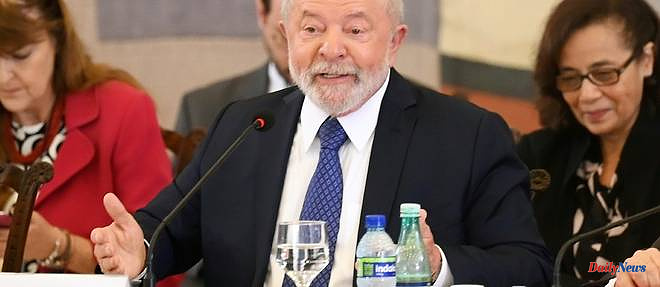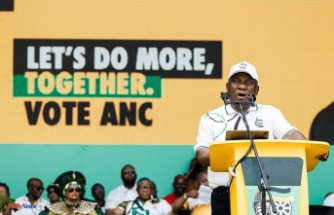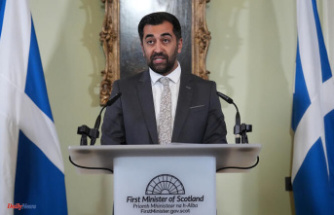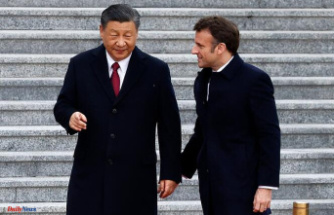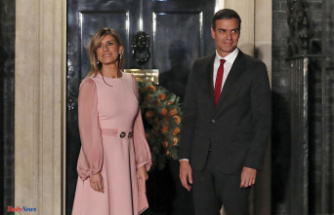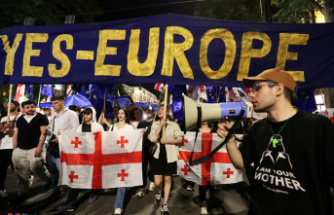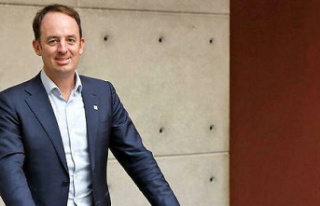Brazilian President Luiz Inacio Lula da Silva advocated "union" in Brasilia on Tuesday to "overcome ideological differences" between South American countries, but his support for Venezuela has earned him criticism.
"We let ideologies divide us and disrupt (regional) integration efforts. We abandoned dialogue and cooperation mechanisms, and we all came out the losers," Lula said in a speech before the start. closed meetings.
"If we are not united, we will not be able to ensure that the development of South America lives up to its potential", added the Brazilian president who began his third term in January as head of the leading economic power in Latin America.
In total, eleven heads of state met in the Brazilian capital for the first meeting of this type since 2014.
Only the president of Peru, Dina Boluarte, missed the call. But the President of Venezuela, Nicolas Maduro, who had not been to Brazil for eight years, was very present.
Lula described Monday as "historic" the return to favor of the person who was persona non grata in Brazil under the mandate of far-right president Jair Bolsonaro (2019-2022).
He also described as "narrative" the accusations of authoritarianism hanging over the Maduro government, also believing that the international sanctions against Venezuela were "inexplicable".
Remarks criticized Tuesday by the center-right Uruguayan president, Luis Lacalle Pou, "surprised to hear that what is happening in Venezuela is just a narrative".
"If there are so many groups in the world trying to work for Venezuela to live fully in democracy, for human rights to be respected, for there to be no political prisoners, the worst thing to do would be to veil the face”, he insisted.
Maduro responded by pointing out that these countries "have one vision" and Venezuela has "another". "The most important thing is that there was a debate," he said.
During his first stint as President of Brazil (2003-2010), the former metalworker had close ties with Hugo Chavez, Maduro's predecessor and mentor.
At the end of the summit, Lula affirmed during a press conference that this country is experiencing an unusual "tranquillity" and regretted that "the same demand that the democratic world formulates for Venezuela does not apply to Arabia Saudi".
The meetings ended with a joint statement aimed at deepening integration to "address common challenges" and increasing trade and investment, but without any concrete agreement.
A working group has also been created, made up of the foreign ministers of the 12 countries, which is to meet in 120 days to analyze the progress made.
During his opening speech, Lula spoke of an "urgency" to renew dialogue in the region in order to put in place "concrete measures for sustainable development, peace and the well-being" of the populations.
Gisela Maria Figuereido, head of relations with Latin America and the Caribbean for the Brazilian government, had already said before the summit that the main objective was to find "a common vision" in areas such as health, infrastructure, energy, the environment and the fight against organized crime.
The last meeting between South American presidents took place in 2014 in Quito, Ecuador, on the occasion of a summit of Unasur, created in 2008 by Lula and Hugo Chavez, during the first wave of leftist governments. in the meeting.
The conservative turn that took place thereafter got the better of this union, and currently only seven of the twelve founding countries remain within Unasur, which Brazil and Argentina only joined again this year.
But the new pink wave, with the recent elections of Lula in Brazil, Gabriel Boric in Chile and Gustavo Petro in Colombia, has changed the game, paving the way for a return to the Venezuelan scene of Maduro and a new impetus of the cooperation between the countries of the region.
05/31/2023 07:17:10 - Brasilia (AFP) - © 2023 AFP

